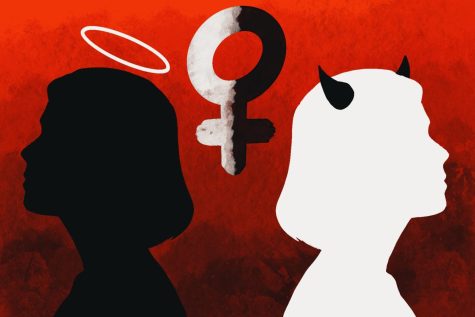Shifting focus from conceal and carry
March 21, 2023
On Feb. 13, an active shooter on Michigan State University’s campus killed three students – Arielle Anderson, Brain Fraser and Alexandria Verner – and injured five others.
The devastating Michigan shooting showcases an increased trend of college and school shootings. The Washington Post reports that “there were more school shootings in 2022 – 46 – than in any year since at least 1999.”
A 2016 study by the Citizens Crime Commission of New York City found that from 2010 to 2016, annual gun violence on college campuses rose from 12 incidents to almost 30. The report also revealed that college shootings were more prevalent in the south – with a 64% incidence rate. The study concluded that an “increase in campus shootings was most profound on colleges in states with increased access to guns.”
College shootings are on the rise – but not just on campuses with pro-gun policies. While Michigan prohibits concealed carry on school campuses, this law did not protect the university. Ultimately, if someone is intent on bringing a gun to campus, they will.
UT has maintained a concealed carry policy since 2015. The mandate was enacted by the Texas Legislature through SB 11 – a bill that students widely protested and continue to fight. SB 11 states that “an institution of higher education … in this state may not adopt any rule, regulation, or other provision prohibiting license holders from carrying handguns on the campus of the institution.”
It’s been eight years since SB 11 was passed, and it is unlikely that the conservative-majority state legislature will overturn it. Rather than attempting to reverse SB 11, we as students should reprioritize our efforts toward feasible, incremental reform. Harnessing grassroots activism will make our community safer in the long run.
Currently, there is a lack of concrete evidence on whether concealed carry laws directly impact mass shooting incidents. A 2016 RAND corporation study found that “allowing concealed carry resulted in highly imprecise and uncertain effects on the likelihood of a mass shooting incident occurring.”
In contrast, it is statistically proven that right to carry laws are associated with greater violent crime rates. A 2016 John Hopkins study reports that “available data indicate … policies that allow individuals to bring firearms onto college campuses are unlikely to lead to fewer mass shootings or fewer casualties from those shootings.”
William Spelman, Emeritus professor in the LBJ School of Public Affairs was also a member of the UT President appointed committee that oversaw the campus use application of SB 11.
“In my opinion, if nobody had a gun on campus, we would be better off,” said Spelman. “It seems to me that in the long run, we’re (going to) conclude the good guys with guns, they’re (going to) make a lot more mistakes than police officers are, and that doesn’t bode well for public safety.”
By streamlining the process to report unconcealed weapons on UT’s campus, administration and UTPD can use existing laws to further mitigate mass shootings.
“If you conceal a gun, it has to be concealed – you can’t flash it,” Spelman said. “It’s not something students are taking advantage of, or they may not know that they can do that … probably because they haven’t got a clue as to how to do that without getting shot. But if we set up a regular procedure for reporting … then that’s something which I think the police would be very happy to help them with.”
Legislative student organizations, like Student Government, and professors can also emphasize the concealment policy in classroom syllabi.
Students can affect change off-campus as well.
“We’re right here in Austin, I think it’s a lot more feasible than people (imagine) to rally up some UT students and go protest in front of the Capitol,” government and French senior Joseph Kudler said. “Even though something might not come of that, I still think it’s incredibly worthwhile to protest and use your voice.”
Federal and state reform can create meaningful change. Spelman recommended policies focused on more quickly identifying and supporting those with mental issues, as well as legislation that makes it more difficult to acquire assault weapons.
While large-scale federal and state reform takes longer to incite, it is worth pursuing nonetheless. Students can involve themselves in grassroots activism.
“That’s going out voting for candidates who you will fight on your behalf, we’ll fight to make sure and prevent gun violence, and that is both in the Texas State House State Senate and in your local city governments,” Kudler said.
While students may not be able to change UT’s campus carry policy, we still have power to protect our community and progress toward a safer, less violent campus.
Muthukrishnan is a government and race, indigeneity and migration freshman from Los Gatos, California.









